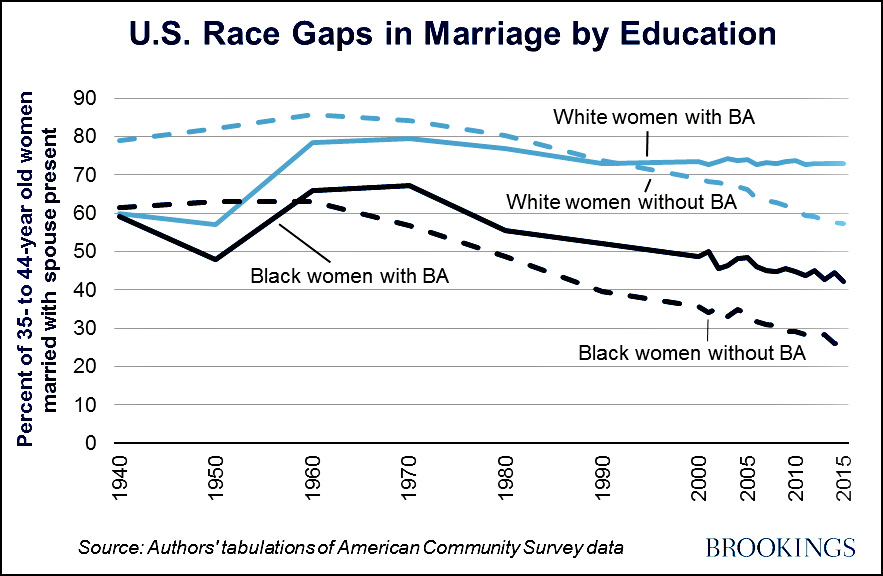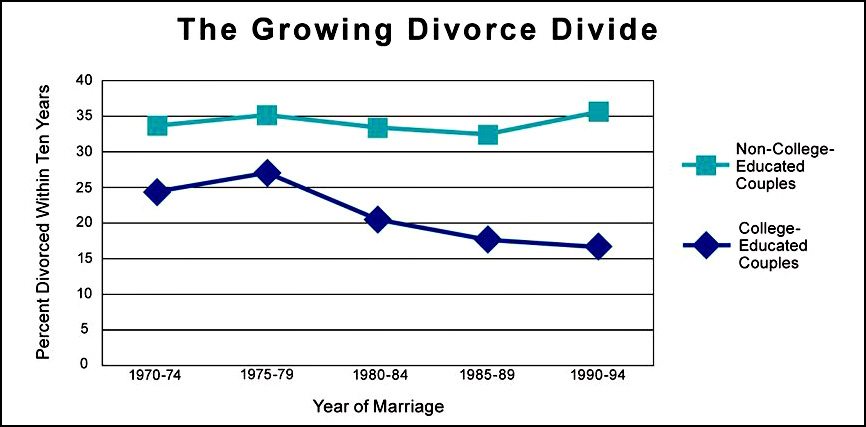In the New York Times today, Christina Cross writes about “The Myth of the Two-Parent Home.” Her overall point is that single-parent homes aren’t the hellholes they’re made out to be, especially for black kids. But I’m confused. First there’s this:
I tracked children’s household living arrangements from birth to adulthood, and I demonstrate that family structure has a weaker relationship to the educational success of black adolescents than of white adolescents. I show that living in a single-mother family does not decrease the chances of on-time high school completion as significantly for black youths as for white youths. Conversely, living in a two-parent family does not increase the chances of finishing high school as much for black students as for their white peers.
OK, so living in a single-parent home is bad for kids, after all. But it’s not as bad for black kids as it is for white kids. But then there’s this:
Researchers have hypothesized that disparities in access to socioeconomic resources […] might account for those differences. Because of historic and contemporary structural racism, black youths are more likely to be exposed to socioeconomically stressful environments than are white youths. Some scholars predict that the additional stress incurred by living apart from a parent is only marginally impactful, above and beyond the existing disadvantages.
Hmmm. So the theory here is that black kids are exposed to so much stress already that a little more barely has an impact. Let’s keep going:
Differences in access to socioeconomic resources such as mother’s education accounted for up to nearly 50 percent of the gap in high school completion….The importance of socioeconomic resources makes sense when we consider the racial gaps in income and wealth between black and white two-parent families. Although in general, youths raised in two-parent families are less likely to live in poverty, black youths raised by both biological parents are still three times more likely to live in poverty than are their white peers. Additionally, black two-parent families have half the wealth of white two-parent families. So, many of the expected economic benefits of marriage and the two-parent family are not equally available to black children.
This really makes no sense. For starters, the usual progressive assumption is that those who are suffering the most deserve the most help. But in this case, Cross is suggesting the opposite: black kids are already suffering enough that we shouldn’t worry too much about tossing another log on the fire in the form of a one-parent home.
Second, Cross suggests that socioeconomic resources account for much of the gap in high school completion. That’s plausible. But if we made some kind of massive effort to close that gap, it wouldn’t do us any good. It would just put black kids on a level footing with white kids, and their single-parent homes would then affect them as much as white kids.
Why write an op-ed like this? Unfortunately, this is the kind of special pleading that’s common when the subject is family structure. On the one hand, there’s a pretty fair literature—which Cross’s own study supports—suggesting that a two-parent family is beneficial for kids (and less stressful for the parents). This is largely because two-parent families are richer; have more time to spend with their kids; are more stable; live in better neighborhoods; and, sometimes, provide better role models for their children. On the other hand, we liberals don’t like telling other people how to live their lives, and we especially don’t like to say anything that even remotely sounds like a criticism of black family lives. So we end up with op-ed pieces like this one that desperately try to make a case that really can’t be made.
It’s worth noting, though, that although we highly verbal, overeducated types might not like to say what we really think, we sure practice it. Marriage rates in the US have fallen overall, but mainly among women without college degrees. Those with college degrees continue to believe that marriage is important even if they aren’t willing to say so too loudly in public:

The same is true of divorce:

Divorce rates are up, but not among the college educated, where it’s not just low, but declining. It turns out that those of us with college degrees are pretty big believers in the value of getting married and staying married. We should be more willing to say so. It’s not like we’re going to force anyone to get married, after all. Still, since it’s obvious that we believe pretty strongly in marriage, why not work a little harder on extolling its benefits?














